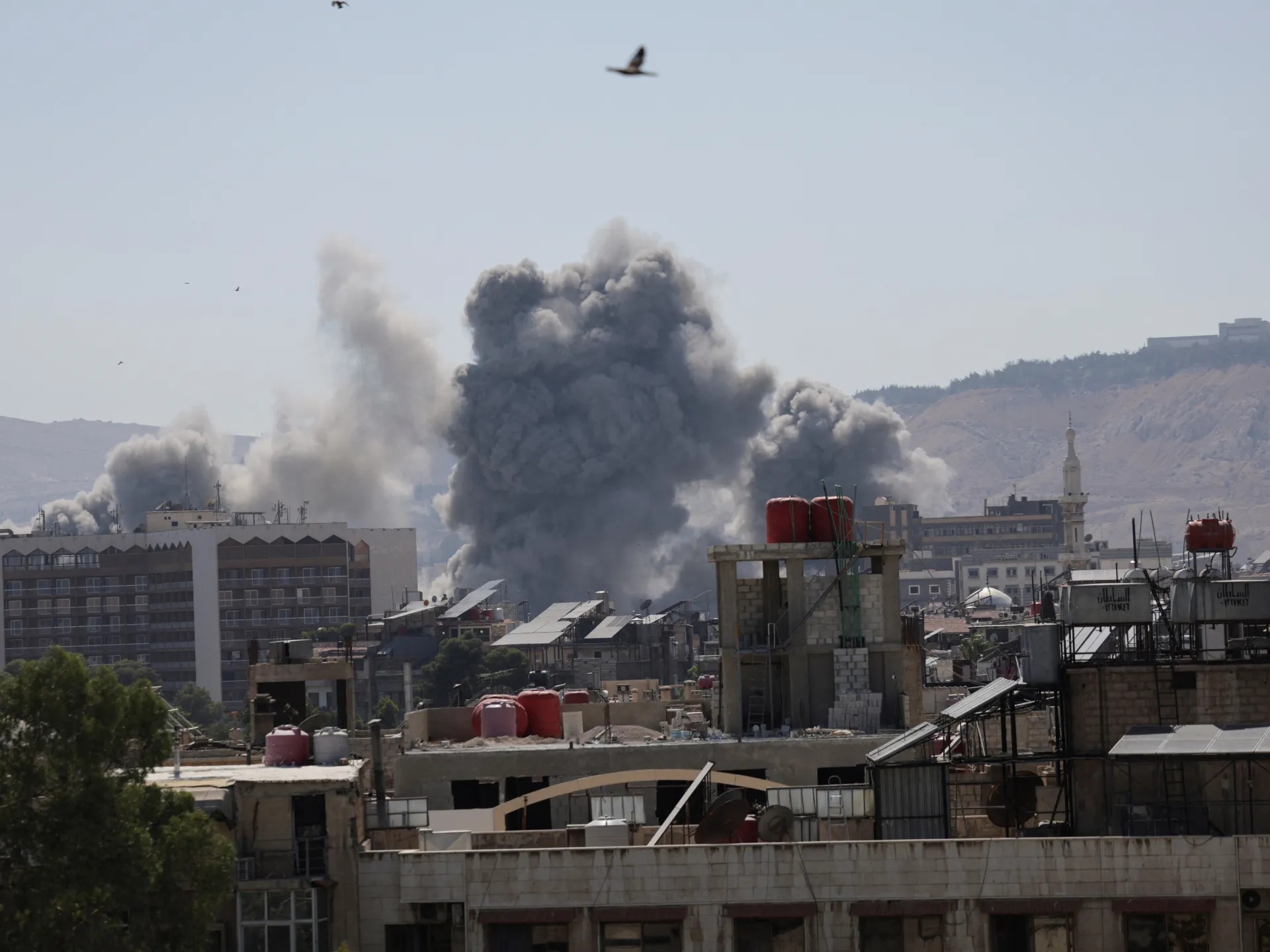Israel has escalated its involvement in the Syrian conflict, launching airstrikes on the Syrian military headquarters and areas near the presidential palace in Damascus.
The move follows through on earlier threats by Israeli officials in response to intensified clashes between the Syrian regime and Druze militias in the southern city of Suwayda.
Israeli Defense Minister Yoav Gallant confirmed that the entrance of Syria’s military headquarters was among the targets struck by the Israeli Air Force.
The strikes came shortly after he warned the Assad-aligned government to withdraw its forces from Suwayda, where fighting with the Druze minority has intensified in recent days.
Israel views the Druze as a strategic and ethnic ally and claims its intervention is meant to protect the community from regime aggression.
A ceasefire announced by the Syrian government on Tuesday quickly collapsed, with heavy fighting resuming Wednesday.
Suwayda, a stronghold of Syria’s Druze population, has once again become the epicenter of sectarian conflict.
Al Jazeera’s correspondent in Damascus, Osama Bin Javaid, reported witnessing two drone attacks on Syria’s Ministry of Defense, one at the front entrance and another at the rear.
He said drones continued circling the area while Syrian forces fired at them, indicating heightened tension in the capital. “Israeli strikes have now reached the heart of Damascus,” he observed.
While the attacks were significant, analysts suggest the strikes were more symbolic than strategic. Rob Geist Pinfold, an international security expert at King’s College London, described them as a “performative escalation,” noting that Israel appeared to avoid causing heavy casualties or structural damage.
However, he warned that such actions could pave the way for broader, deadlier strikes in the near future.
Despite official ceasefire claims, violence in Suwayda spiraled again early Wednesday.
Syria’s Ministry of Defense blamed “outlaw groups” for reigniting hostilities and said government forces were acting in self-defense while attempting to safeguard civilians.
The ministry also announced the opening of humanitarian corridors for residents to evacuate the conflict zone.
Casualty reports vary, but local sources say at least 70 people have died, with more than 200 injured.
The UK-based Syrian Observatory for Human Rights put the death toll at over 250, including 138 regime soldiers and several civilians.
The monitor also reported at least 21 victims of summary executions.
The conflict has caused unrest along the Israeli-Syrian border.
Hundreds of Israeli Druze have gathered near the frontier, with some reportedly crossing into Syria to support their co-religionists. The IDF said it intercepted dozens attempting to re-enter Israel illegally.
In a direct appeal to the Druze community, Prime Minister Benjamin Netanyahu urged them to return home and avoid complicating the military’s mission.
Meanwhile, Israeli airstrikes around Suwayda have intensified.
The IDF confirmed hitting military convoys, tanks, rocket launchers, and pickup trucks en route to the city.
Defense Minister Gallant reiterated Israel’s stance, warning Syria that further action would be taken unless it pulled back its forces from Druze territory.
“Israel will not abandon the Druze in Syria,” he stated, adding that Israel remains committed to enforcing its demilitarization policy in southern Syria.
Syria has condemned Israel’s military actions as violations of international law, with support from several Arab nations.
The Israeli government has dismissed the legitimacy of Syria’s new leadership under Ahmed al-Sharaa, branding it extremist and unfit to govern.
The recent fighting in Suwayda erupted following a series of kidnappings and reprisal attacks between local Sunni Bedouin tribes and Druze factions.
One such incident, the abduction of a Druze merchant, sparked the latest wave of violence.
Videos of abuses circulating on social media have further inflamed tensions.
Experts say the situation in Suwayda has evolved into a complex mix of sectarian violence and political instability.
Political analyst Samy Akil criticized the Syrian government for failing to implement an inclusive political model or share power effectively with minority groups, including the Druze.
Rob Geist Pinfold noted that Israel’s actions reflect ongoing support for Sheikh Hikmat al-Hijri.
al-Hijri is a powerful Druze leader whose forces seized government buildings in Suwayda last week.
“Israel’s intervention came as a direct response to defend him from regime retaliation,” Pinfold explained.
Rather than seizing an opportunity to recalibrate relations with Syria’s new government, Israel appears committed to maintaining its longstanding posture of military dominance across the border.







